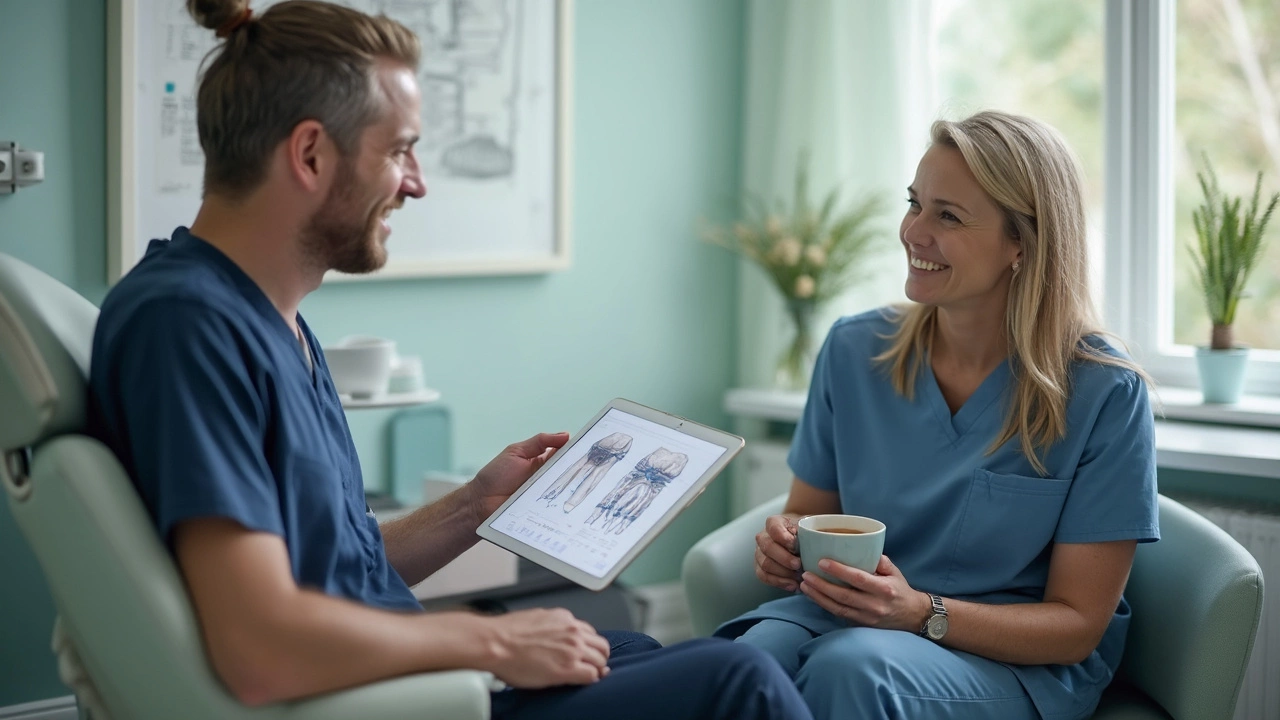Dental Anxiety: How to Calm Your Fear and Feel Confident at the Dentist
Got the jitters just thinking about a dental chair? You’re not alone. Many people feel a knot in their stomach before a check‑up, and that’s okay. The good news is you can take a few simple steps to turn that nervous energy into calm. Below you’ll find real‑world tips you can start using today, no fancy jargon required.
Why Dental Anxiety Happens
Most of the time, dental anxiety is rooted in a past experience – maybe a drill that felt too loud or a painful bite. Even a story you heard from a friend can plant the seed. The brain links the clinic’s smell, the bright lights, and the sound of a suction tip with discomfort, so it triggers a stress response before you even step inside.
Another common trigger is loss of control. Sitting in a reclined chair while someone works in your mouth can feel vulnerable. Add to that worries about cost or the fear of a bad outcome, and the anxiety can spike. Understanding these triggers helps you tackle them one by one.
Proven Strategies to Reduce Dental Fear
1. Talk Before the Chair. Call the practice and let the team know you’re nervous. A good dentist will explain each step, offer a signal you can give if you need a break, and adjust the pace to match your comfort level.
2. Schedule Smart. Choose a morning slot when you’re fresh and the office is less busy. Avoid back‑to‑back appointments that can make the day feel rushed.
3. Bring a Buddy. Having a friend or family member sit in the waiting room can give you a sense of support. Some clinics even let a parent hold your hand if you’re a teen.
4. Use Controlled Breathing. Try the 4‑4‑6 method: inhale for four seconds, hold for four, then exhale slowly for six. Doing this a few times before you walk in can drop your heart rate and calm nerves.
5. Ask for Numbing Options. Modern numbing gels work fast and can make the drill feel like a light tap. If you’re really anxious, discuss mild sedation or nitrous oxide with your dentist – many offices offer it without a lengthy paperwork process.
6. Distract Yourself. Bring headphones and listen to your favorite playlist or an audiobook. Some clinics have TVs; looking at a screen can keep your mind off the procedure.
7. Visualize Success. Spend a minute picturing a smooth, quick visit and the fresh feeling afterward. The brain responds to positive images, and it can lower the stress hormones.
8. Reward Yourself. Plan something pleasant after the appointment – a coffee at your favorite café, a short walk, or a quick selfie to celebrate that you faced the fear.
Putting a few of these ideas together often makes a big difference. For example, you might call ahead, request a breathing break, and bring headphones. When the drill starts, you’re already in control of the situation.
If anxiety still feels overwhelming, consider a short session with a therapist who specializes in dental phobia. Cognitive‑behavioral techniques can rewire the fear response, making future visits a breeze.
Remember, the dentist’s goal is to keep you healthy, not scared. By sharing your worries, timing your visit right, and using simple relaxation tricks, you can turn a dreaded appointment into a routine check‑up. Your smile deserves that peace of mind.
Are You Put to Sleep for Dental Implants? What to Expect in the UK
Getting dental implants raises lots of questions, especially about sedation and how comfortable the process is. This article breaks down what actually happens during the procedure, the different types of sedation used in the UK, and how you can decide what's best for your comfort level. You'll also find tips for managing nerves if the dentist's chair makes you uneasy. We’ll tackle practical concerns, bust myths, and help you walk in feeling much more prepared.

